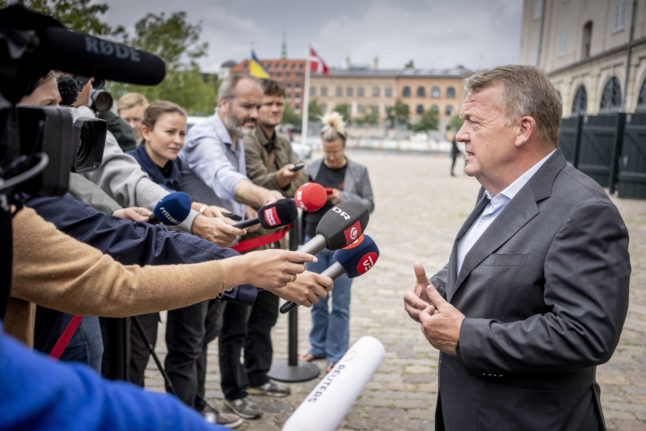Opposition parties on both the right and left wings have spoken critically about the visit, citing issues including China’s stance towards Taiwan, support of violent regimes and record on international treaties.
Rasmussen has stated that Denmark has had a “too naïve” approach to China in the past, but that it remains in the Nordic country’s interest to have a good relationship with Beijing.
The trip has meanwhile been backed by the Confederation of Danish Industry, which says that Denmark’s trade with China is crucial.
The libertarian right-wing party Liberal Alliance has criticised Rasmussen’s visit and said that China regularly fails to comply with international treaties, threatens Taiwan and the South China Sea passage for ships and is trying to exert itself in the Arctic region.
“We should be careful about becoming too dependent on states and regimes that don’t wish us well,” the party’s foreign spokesperson Henrik Dahl said.
The spokesperson said that the trade argument did not weigh heavily enough against the other concerns.
“You can also find examples in history that you shouldn’t be too busy trying to make money,” he said.
Three other parties – the national conservative Danish People’s Party and Denmark Democrats, and the centre-left SF – have also been critical of the visit by Rasmussen.
The former party’s leader Morten Messerschmidt told broadcaster TV2 that China “is flagrantly stealing our know-how and supports some of the worst regimes in the world”.
Rasmussen told news wire Ritzau that he was taking an open approach to the new partnership with China.
Although Denmark may have been too close to China previously according to Rasmussen, he also warned against now taking excessive distance.
“It’s not in Danish interests to shift from one position to the other. If we tended to be a bit too open 15 years ago, the lesson should not be that we are now too closed,” he said.
“If you had that approach to the rest of the world, that we would only work with those who are like us, you’d be left in a very small club,” he said.



 Please whitelist us to continue reading.
Please whitelist us to continue reading.
Member comments